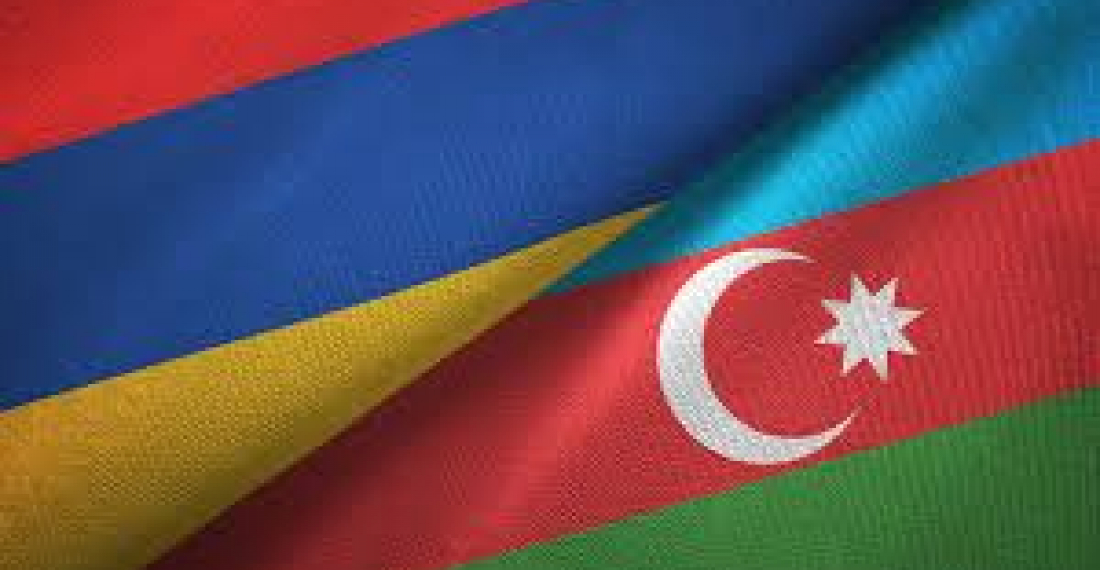On December 12, 2022, Azerbaijan blocked the Lachin corridor, the only route connecting the self-proclaimed Nagorno Karabakh Republic with the outside world. The corridor is blocked by "eco–activists," who initially demanded access for the relevant Azerbaijani state institutions to monitor the copper-molybdenum mine in Nagorno Karabakh. They argued that Nagorno Karabakh authorities did not meet international standards. However, very soon, the list of demands started to increase – the resignation of the newly appointed state minister of the self-proclaimed Nagorno Karabakh Republic, Ruben Vardanyan, and the establishment of an Azerbaijani checkpoint in the Lachin corridor were among the new demands added. Anyone, who has at least a basic understanding of the Nagorno-Karabakh conflict, and has followed the developments there since the end of the 2020 Nagorno Karabakh war, has no doubts that what has been going on in the Lachin corridor for almost a month is connected with geopolitics, rather than benign environmental concerns.
There are plenty of explanations for why Azerbaijan decided to close the corridor and why it thought December 2022 was the best time to do that. Many Armenian experts are sure that the strategic goal of Azerbaijan is to force out as many Armenians from Nagorno Karabakh as possible. Imposing the blockade and triggering a humanitarian crisis is one of the options to send a clear message to Armenians living there that they have no future in Nagorno Karabakh. Other experts claim, that the strategic goal of Azerbaijan is to force Armenia to sign a peace agreement with Azerbaijan on Baku's terms, including establishing the so-called "Zangezur corridor." According to this logic, by closing the Lachin corridor, Azerbaijan sent a message to Armenia – either there will be two corridors with similar modalities of functioning, or there will be no corridor at all.
Some in the Armenian government claim that Russia is involved in the closure of the Lachin corridor, and by doing this the Kremlin seeks to force Armenia to join the Union state of Russia and Belarus. Prime Minister Pashinyan did not accuse Russia of closing the Lachin corridor. However, he argued that the control over the Lachin corridor was the direct responsibility of Russia according to the November 10, 2020, trilateral statement. Thus, Prime Minister repeatedly called Russia to implement its obligations, and to apply to the UN Security Council to provide an international mandate to the Russian peacekeepers. According to his other suggestion to Russia, Kremlin should apply to the UN Security Council to send an international peacekeeping mission to Karabakh.
Some Russian experts believe that the strategic goal of the closure of the Lachin corridor is not Nagorno Karabakh at all. According to this narrative, the blockade is a provocation to trigger a Russian response and to instigate clashes between Russian peacekeepers and Azerbaijani protestors, which would inevitably undermine Russia – Turkey relations. Thus, the primary goal of this action is to trigger tensions between Moscow and Ankara or even ruin Russia – Turkey connections, destroying the understanding between Ankara and Moscow on using Turkey’s territory and financial institutions for import and export from Russia, creating a gas hub, and facilitating Turkey – Syria dialogue mediated by Russia. Russian experts argue that the real beneficiary of such developments would be the US and UK, so they believe that the closure of the Lachin corridor is a global geopolitical conspiracy, where Azerbaijan is a pawn in the hands of the West. In this scenario, the suffering of the Nagorno Karabakh Armenians is collateral damage.
We may continue the list of explanations on who decided to close the Lachin corridor, and why and how. However, one outcome is already here regardless of what are the real motives behind Azerbaijan's actions. As Armenians in the self-proclaimed Nagorno Karabakh Republic face shortage of food, gasoline, medicines, and other basic staples and are forced to close kindergartens, hopes for dialogue and confidence building between Armenians and Azerbaijanis are quickly decreasing.
The 2020 war delivered a significant blow to the confidence-building and peacebuilding activities between the sides. However, primarily due to the targeted efforts of the EU, several confidence-building and dialogue-facilitating initiatives were launched in 2021. The Azerbaijani incursions into the Armenian territory in May and November 2021, the military escalations by Baku along the Azerbaijan – Nagorno Karabakh line of contact in March and early August 2022, and the large-scale Azerbaijani aggression against Armenia in September 2022 created significant obstacles for these activities. Nevertheless, as a result of the efforts of all sides, the process did not die. However, the overt steps to starve the population of the self-proclaimed Nagorno Karabakh Republic could be the last nail in the coffin of the confidence-building and dialogue programs and activities. Since the end of the first Karabakh war in May 1994, one of the primary obstacles to the successful peaceful resolution of the conflict was the lack of trust between the sides. The international community, especially the EU, made significant efforts to overcome this obstacle by launching projects to create minimal trust between Armenians and Azerbaijanis.
Nevertheless, if one side of the conflict, regardless of the motives and explanations, takes action to starve the civilian population of the other side, trust will not reach the zero level; it may go beyond zero. Thus, all external actors, who have been involved in the complicated task of creating some trust between Armenians and Azerbaijanis, should clearly express their position – the blockade of the Lachin corridor should be stopped immediately. At the same time, negotiations should continue to address any concerns of Azerbaijan without breaching the November 10, 2020, trilateral declaration.







